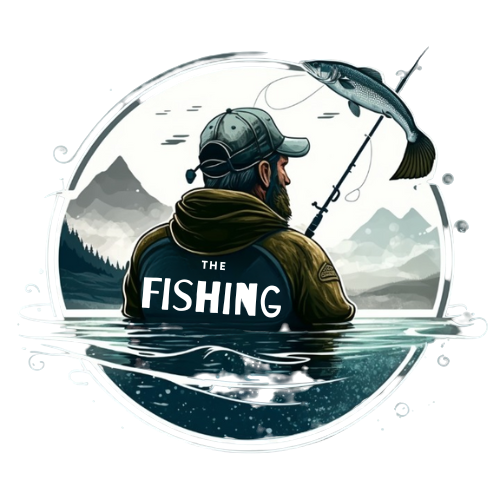When frigid temperatures arrive, many anglers put their fishing rods away for the season. But if you want to keep fishing through the winter, you may ask: Do fish bite in cold weather?
Yes, fish still bite in cold weather, but their feeding and activity slows as water temperatures drop.
While fish activity slows in the winter, you can still catch fish if you adjust your techniques. The key is understanding how fish behave when water temperatures drop.
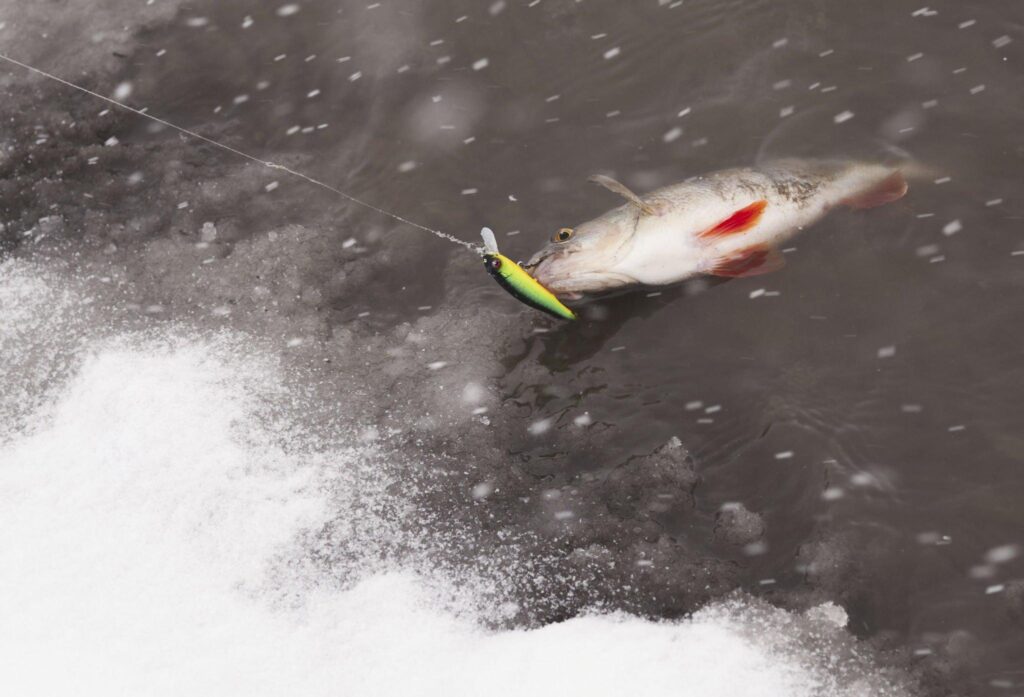
Table of Contents
What Do Fish Eat in the Winter?
Fish metabolism slows way down in cold water. They don’t need to feed as often and become lethargic. However, fish still need to be eaten over the winter to maintain body weight.
They target easy meals that don’t require chasing down fast-moving baitfish. Slow-moving creatures like crayfish, worms, and insect larvae are prime winter fare.
When fishing in cold weather, use baits that mimic these slow food sources.
Plastics like curly tail grubs, crayfish imitations, and soft stick baits are good choices—tip jigs with live bait like nightcrawlers or minnows where permitted. Spoons and shallow diving crankbaits are also good lure options.
When Are Fish Most Active in Cold Temperatures?
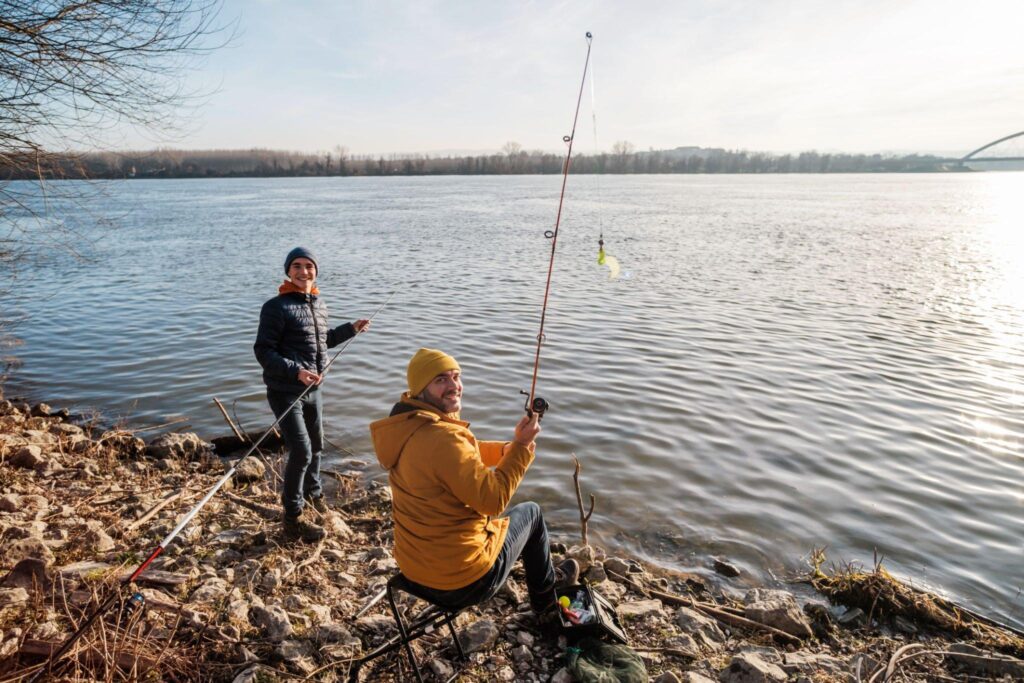
Even in frigid conditions, there are still windows of activity when fish are more likely to bite:
- Early Morning – At first light, shallow water has often not cooled down yet from the previous day’s sun. Target shallow flats and coves early.
- Mid-Day – On sunny days, the midday sun can warm shallow waters several degrees, triggering a mild feeding window.
- Sunset – As the sun goes down, fish sense the night approaching and may feed aggressively before activity slows in darkness.
Therefore, early morning, mid-day, and sunset is the best time to fish in cold weather.
Where to Find Biting Fish When It’s Cold
While fish aren’t as active in cold water, you can still find them congregated in certain areas:
- Deeper drop-offs and holes out of current – Less temperature fluctuation than shallows
- Near cover – Wood, rocks, and docks provide ambush points
- Channels – Dark bottom, protection from current
- Warm water discharges – Output from power plants, factories
Move around and fish at different depths until you locate where fish are holding each day.
5 Pro Tips for Fishing Success in Cold Weather
Fishing successfully in cold weather requires some specialized gear and techniques. Follow these pro tips to help you catch more fish when Old Man Winter arrives.
1) Choose Locations Out of the Wind
Wind chill can ruin an otherwise decent fishing day in winter. Seek out locations that block the wind as much as possible. Fish behind islands, in coves, and on the downstream side of protruding banks. Breaking the wind will help you stay comfortable longer.
2) Your Trip Carefully
Pay close attention to water temperature trends and weather changes. Fishing is best during warming trends, while rapidly falling temperatures after a cold front shut down feeding activity. Target the warmest periods during the day, generally mid-morning to mid-afternoon on sunny days.
3) Dress Appropriately in Proper Gear
Having the proper cold-weather fishing clothing and equipment is a must. Use layered synthetic or wool clothing to stay warm and dry. Carry an extra set of gloves and socks in case yours gets wet. Pack hand warmers and a thermos of hot coffee or soup. And use rods and reels suited to icy conditions.
4) Use Winter-Specific Baits and Lures
You want to use baits and lures that impart slower, subtler action in frigid water. Plastics on jigs are excellent choices, as are spoons, ice fishing jigs, and suspending jerk baits. Use light line – 2-6 lb test – for better lure action. Keep lures moving steadily to trigger cold lethargic fish.
5) Take Safety Precautions
Don’t fish alone in winter. Let someone know where you’ll be and when to expect your return. Carry a safety kit with first aid, emergency blanket, food, flashlight, lighter, and charged phone. Take precautions against hypothermia.
Top Species to Target in Cold Water
While some species hole up until spring, several popular freshwater game fish remain catchable in cold water if you use the right tactics:
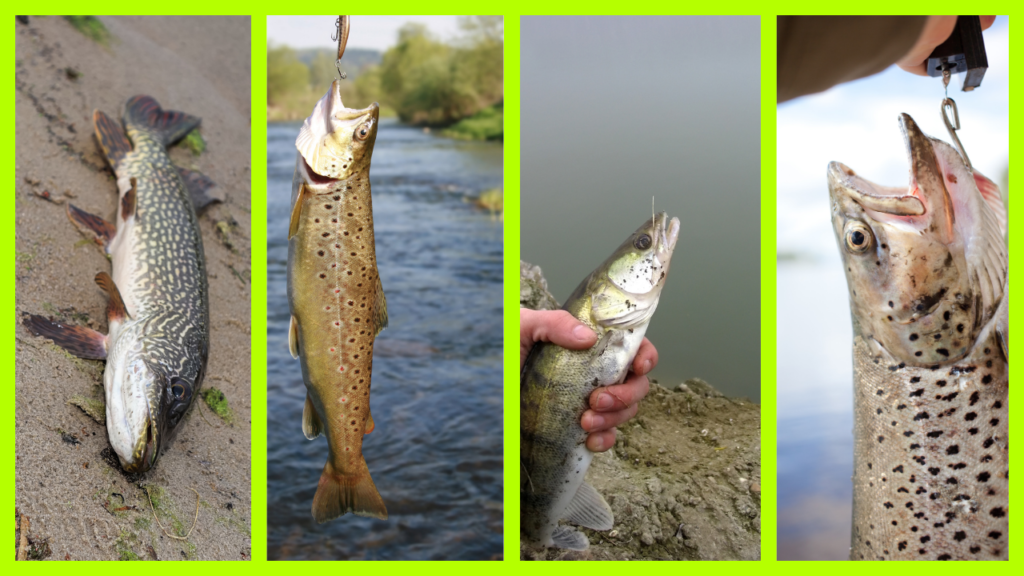
Northern Pike
Pike are aggressive predators that continue feeding even in icy water. Their metabolism runs high to maintain their bulk. Use big spoons, spinnerbaits, and jerkbaits to draw reaction strikes.
Crappie
Crappies suspend near structures in deeper holes out of current. Drop small jigs or small suspended minnows straight down over the fish. Use your electronics to find them.
Walleye
Walleyes often roam transition zones between shallow and deep water in winter. Drag jigs or rigged minnows along these break lines, especially where there is current.
Trout
Stocked trout will feed sub-surface throughout winter. Find them in deeper pools and below riffles. Fish small in-line spinners, spoons, and dough baits.
You may also like to know: What Fish Bite in Cold Weather? A Guide to Targeting Species
Shore Fishing Strategies for Winter
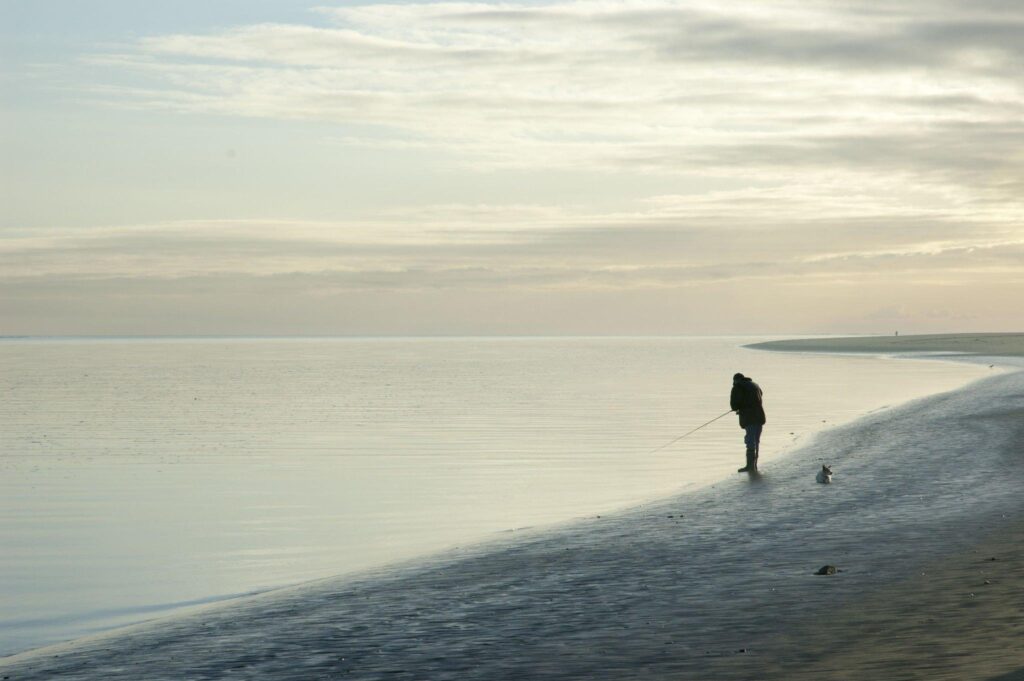
You don’t need a boat to catch fish in the winter. Use these bank fishing tactics to hookfish from shore when Old Man Winter comes knocking:
Avoid the Wind
Blocking the wind is even more critical when shore fishing. Seek out back bays, harbors, and areas protected by high banks or trees from prevailing winds. Breaking the wind chill is essential.
Focus on Sunny Days
Sunny days warm shallow waters several degrees, creating a small temperature bump that stimulates fish activity. Overcast or snowy days tend to be slower. Maximize fishing time during peak sun exposure.
Slow Down the Retrieve
Lethargic fish in cold water are easily turned off by fast-moving baits. Slow your presentations way down, pausing lures frequently during retrieves. Take the time to work areas thoroughly.
Work Lures Vertically
Standing on the shore, work lures directly beneath you by casting and slowly jigging them back. Jerk baits, blades and jigging spoons are perfect for this. Use an aggressive lift-drop to trigger reaction bites.
FAQs:
How Cold Is Too Cold To Catch Fish?
Once water temperatures drop below about 50 degrees Fahrenheit, fish metabolism and feeding activity start to decline. But hardy species like trout and pike will still bite even in very frigid conditions with ice on the water.
Do Fish Come Out More When It’s Cold?
Not exactly. Fish become less active in cold water. But they do congregate in warmer, deeper areas where they can still be caught by adjusting techniques.
Do Fish Bite In 40-Degree Water?
Yes, though their activity is diminished. Slow down presentations with jigs, spoons, and live bait fished near the bottom structure. Fish during warmer periods of the day.
Do Fish Bite On Warm Winter Days?
Warmer sunny days can increase shallow water temps a few degrees, triggering a slight increase in fish activity mid-day. Take advantage of any warming trends.
Final Words: Do Fish Bite in Cold Weather?
The answer is a resounding yes! While winter fishing is often slower, fish still must eat. Their metabolism and feeding activity change with the seasons, but they can still be caught if you adapt your strategies.
With the right preparation and game plan, you can battle Old Man Winter to continue catching fish all season long. So take advantage of those few precious months when the water is hard and the playing field is level. Sharpen those hooks and freeze your bait, then head out and make some memories during the best time of year to wet a line.
